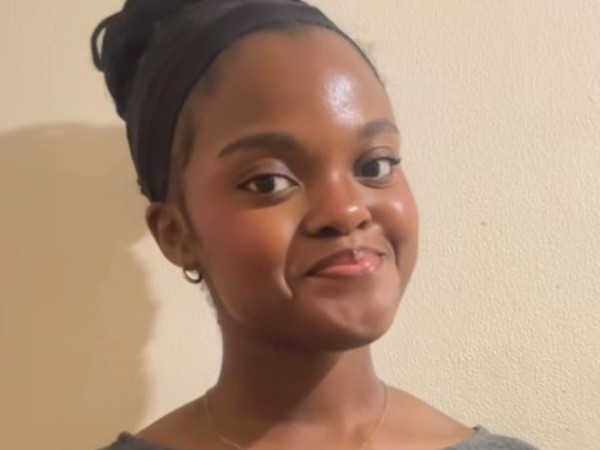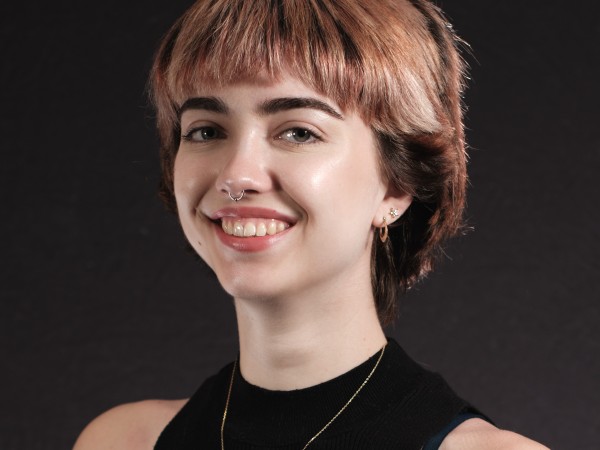
Niharika
"The course had structure, depth, and a clear focus on critical thinking and research. It’s BPS and AACSB-accredited, with a strong research reputation. Close enough to London for access, but far enough to breathe: the balance felt right."
Entry year
2024If you're thinking about studying Occupational and Organizational Psychology, you’ve probably read dozens of course pages already. I did the same. At one point, all the modules started to blur together, and it was hard to tell what actually made one programme different from another.
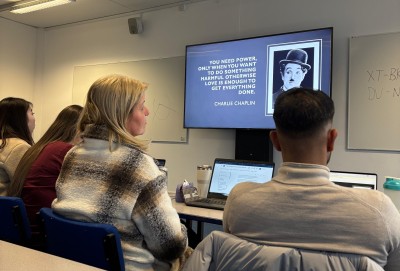
At first, Surrey wasn’t my frontrunner. But sometimes, the best chapters start with a detour. I then looked deeper, and it just made sense.
The course had structure, depth, and a clear focus on critical thinking and research. It’s accredited by both the British Psychological Society (BPS) and the Association to Advance Collegiate Schools of Business (AACSB), with a strong research reputation. Close enough to London for access, but far enough to breathe: the balance felt right.
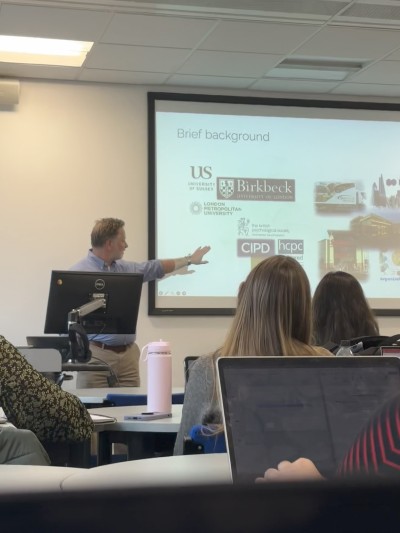
In those first few weeks, I was excited but also overwhelmed. Critical reflection? Independent research? I felt like I was learning a new language. Our assignments didn’t stay on the page they became projects, pitches, and strategies. It challenged me to shift from “What does the theory say?” to “How does this actually work in practice?” That mindset stayed with me
What I found in the Faculty of Arts, Business and Social Sciences (FABSS) wasn’t just expertise it was support. Lecturers who gave time, not just teaching. Peers who shared, struggled, encouraged. And a programme leader, Dr Yingfei Héliot, who didn’t just respond to student feedback, she acted on it.
As Course Rep, I brought forward concerns about clustered deadlines and assignment clarity. Within weeks, changes were in motion. I didn’t just feel heard, I felt part of a team that genuinely wanted us to succeed.
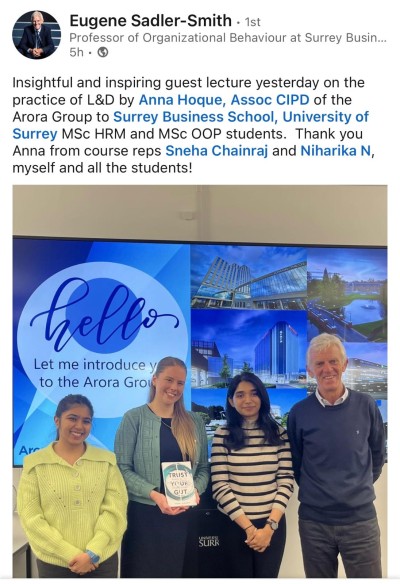
The course itself? It pushed me. In the best way. The guest lectures were some of the most memorable parts of the course. Hearing directly from professionals working in the ARORA Group, consultancy, and industry made the subject come alive.
One talk in particular, on the BPS chartership journey, turned what once felt like a distant process into something clear and achievable.
These sessions weren’t just informative; they helped me see how what we were learning applies beyond the classroom. More than once, I found myself thinking, “I could see myself doing that.” That shift from studying a subject to picturing yourself in the profession is something this course made possible.
Studying in Surrey Business School gave me more than a degree. It gave me a safe, challenging, supportive space to evolve not just academically, but personally. I learned what it means to lead with empathy, to think critically, and to show up for others and for myself.
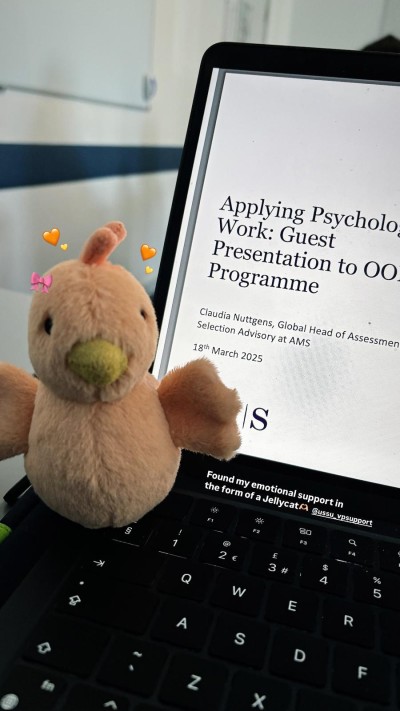
But the chapter that truly transformed me? Becoming Chair of the Student Equality Network. It wasn’t about leading from the front it was about creating a space where every voice, especially the quieter ones, could be heard.
The EDI Award under FABSS came as a surprise. It was the most unexpected full-circle moment. From feeling unsure about whether I belonged, to being celebrated for helping others feel like they do that’s the part I’ll carry with me long after graduation.
If you’re an international student wondering if you’ll find your place here, know this: Surrey doesn’t ask you to fit in. It gives you space to stand out.
“You don’t just fit in at Surrey, you find new ways to belong.”
To read more about Niharika's experience studying at Surrey, you can read her blog post, 'Postgrad life at Surrey: I've found where I belong', here.
